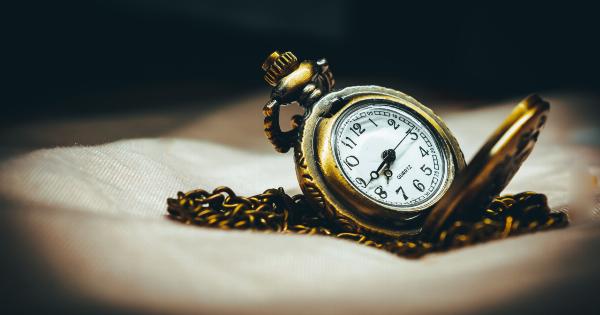There is a common notion that men are naturally attracted to younger women. It has been perpetuated by society and popular culture, often portraying older men with younger female partners.
But is this really true? Do men genuinely prefer younger women? In this article, we delve into the topic and explore the various factors that influence men’s dating preferences.
1. Biological Factors
One argument that supports the idea of men preferring younger women is grounded in evolutionary biology. From an evolutionary perspective, men are wired to seek partners who are fertile and capable of producing healthy offspring.
Youth is often associated with greater fertility, which may explain why men are instinctively drawn towards younger women.
2. Societal Influence
The media and societal norms have played a significant role in shaping our perceptions of age and relationships. Many movies, TV shows, and advertisements portray older men as desirable and successful, often paired with younger women.
This portrayal can create the impression that men naturally gravitate towards younger partners, impacting individuals’ own preferences and beliefs.
3. Psychological Factors
Psychological factors also contribute to men’s preferences for younger women. Some men may feel a sense of power, vitality, or ego boost when they are in relationships with younger partners.
Being with a younger woman might make them feel more youthful, attractive, and validated. This psychological aspect can strongly influence their partner preferences.
4. Cultural and Historical Context
Throughout history, there have been cultural and social norms that favor older men being with younger women. These norms often arise from power imbalances, traditional gender roles, and societal expectations.
While such norms are slowly shifting in modern times, they can still shape personal preferences and influence men’s choices in relationships.
5. Personal Experiences
Men’s personal experiences can greatly impact their preferences. Positive experiences with younger partners may reinforce the belief that they are more compatible, vibrant, or exciting.
Conversely, negative experiences with older partners might lead to a preference for younger women. Personal encounters and past relationships can heavily influence men’s perceptions of age in dating.
6. Varied Preferences
It is crucial to acknowledge that not all men prefer younger women. Just as with women’s preferences, men’s dating preferences can vary significantly.
While some men might feel more attracted to younger partners, others might be attracted to individuals closer to their age or even older. It is essential to avoid generalizing and recognize the diversity in men’s preferences.
7. Seeking Different Qualities
Age is not the sole determinant of attractiveness or compatibility. Men seek different qualities in a partner based on their own values, goals, and personality traits.
Some may prioritize youth and physical appearance, while others may seek emotional maturity, intelligence, or shared interests. Preferences can vary greatly, highlighting the multifaceted nature of attraction.
8. Long-Term Relationship Dynamics
When it comes to long-term relationships, factors such as emotional connection, shared values, and compatibility become crucial. While initial attraction might be influenced by age, sustainable relationships require more than just youth.
Shared interests, life goals, and emotional intimacy often become more important considerations, blurring the significance of age in long-term dynamics.
9. Social Acceptance
Contrary to popular belief, societal acceptance of relationships with age gaps has increased in recent years. People are embracing diverse relationships, challenging age-old norms and prejudices.
This changing social landscape allows individuals to explore and pursue connections based on personal compatibility and disregarding societal expectations.
10. Conclusion
While it is often assumed that men prefer younger women, the reality is far more complex. Biological, societal, psychological, and personal factors contribute to men’s preferences in relationships.
It is crucial to acknowledge the diversity in men’s preferences and avoid generalizations. Ultimately, true compatibility and connection transcend age boundaries, and personal choice should be respected and valued.






























